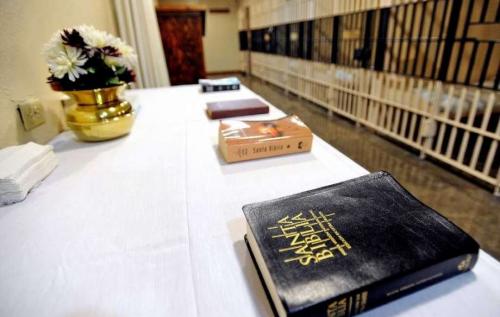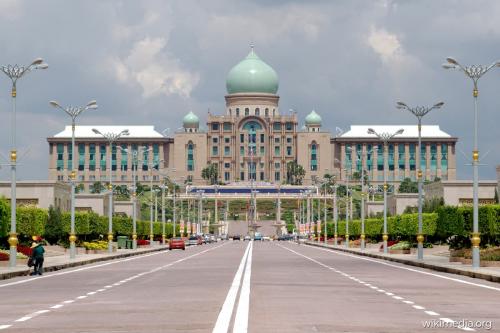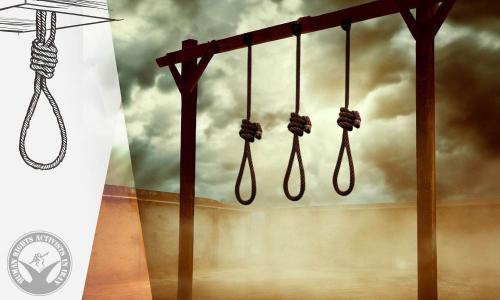government: presidential republic
state of civil and political rights: Partly free
constitution: August 1991, amended by the Parliament on 5 January 2016 (a constitutional referendum was held on 11 August 2016, but turnout was only 44%, below the 50% threshold required to validate the result)
legal system: based on common and customary law; judicial review of legislative acts in an ad hoc constitutional council
legislative system: unicameral National Assembly
judicial system: Supreme Court, High Court
religion: Christian 50%-75%, Muslim and Hindu 24%-49%, indigenous beliefs 1%
death row: 170 (of which 168 male and two women, as of 27 April 2017, according to the Zambia Prisons Service)
year of last executions: 0-1-1997
death sentences: 94
executions: 0
international treaties on human rights and the death penalty:International Covenant on Civil and Political Rights
1st Optional Protocol to the Covenant
Convention on the Rights of the Child
Convention Against Torture and Other Cruel, Inhuman or Degrading Treatment or Punishment
Statute of the International Criminal Court (which excludes the death penalty)
situation:
The Zambian Penal Code, section 43, states that the death penalty shall be enforced in cases regarding high treason, murder and armed robbery.
Zambia has not executed anyone since 1997, owing to a presidential moratorium on executions that has been upheld by three consecutive heads of State, Levy Mwanawasa, Rupiah Banda, and Michael Sata, who each personally opposed the death penalty.
President Mwanawasa, a Christian Baptist of abolitionist leanings, from his election in 2001 until his death in August 2008, refused to sign orders of execution, commuting hundreds of death sentences. “People can’t be sent to the butcher like they were chickens, and as long as I’m President, I will not sign any orders of execution. I don’t want to be the executioner’s boss,” Mwanawasa said.
His successor, Rupiah Bwezani Banda, also said that he would not sign a death warrant for any condemned inmate despite the death sentence still being enshrined in the Constitution. Banda, who was Deputy President of Zambia under President Mwanawasa from 2006 until the latter’s death in 2008, said he would follow the footsteps of his predecessor. In fact, President Banda commuted death sentences of more than a hundred prisoners during his tenure, which ended in September 2011, when opposition leader Michael Sata defeated him in the presidential elections of 20 September 2011.
Also President Michael Sata followed the policy of his predecessors. In May 2013, he pardoned 113 death row inmates who had their death sentences commuted to life imprisonment. On 25 December 2013, President Sata, in a Christmas gesture, spared 10 other prisoners from the hangman’s noose by commuting their death sentences to life. Following the death of President Michael Sata in October 2014, Edgar Lungu was sworn in as new President in January 2015.
On 25 May 2015, President Lungu pardoned and released 177 prisoners in commemoration of the Africa Freedom Day. The President also commuted sentences of 54 prisoners who were serving death sentences to life imprisonment while 41 inmates initially sentenced to life imprisonment had their sentences reduced to 25 years. This was the first time in the history of Zambia to have some inmates from Mukobeko Maximum Prison considered for release during the commemoration of Africa Freedom Day.
On 16 July 2015, all prisoners awaiting death by hanging were removed from death row at Mukobeko Maximum Security Prison. President Lungu commuted all the death sentences of 332 prisoners to life imprisonment to ease maximum security prison congestion. During a visit to Mukobeko prison, Lungu said it was unacceptable for a prison with a capacity of 51 inmates to house hundreds. “It goes without saying that this is an affront to basic human dignity apart from the health and sanitation challenges that it has created,” Lungu said. The Zambian leader further said his administration was committed to improving the situation in the country’s prisons, which were built before Zambia attained independence in 1964, with a capacity to accommodate only 8,200 inmates nationally. Currently, there are about 19,000 inmates in the country’s prisons, a situation that has caused congestion.
As of 24 August 2015, there were only three male inmates on death row at Mukobeko Prison, according to the Zambia Prisons Service (ZPS). On 18 April 2013, the National Constitution Convention voted to retain the death sentence, which is in clause (3) of Article 28 of the First Draft Constitution. When the clause was first put to a vote on 16 April, delegates reached a deadlock and pushed it to a secret ballot, where 177 delegates voted for its retention while 138 rejected it. On 13 April, the Bill of Rights thematic group at the National Constitution Convention had rejected Article 28 on the controversial death penalty provision in the draft Constitution. Article 28 (3) of the First Draft Constitution states that, “A person may be deprived of life if that person has been convicted of a capital offence and sentenced to death.”
In January 2016, the Parliamentary Committee on Legal Affairs held a series of hearings to receive views on whether the death penalty should be abolished or not. On 13 January, Senior Assistant Commissioner Chrispin Kaonga of the Zambia Prisons Services argued that since death was the end to one’s life there was no lesson to the one that was punished with a death sentence; furthermore, on the administrative aspect with moratorium in place, to continue maintaining it is very unproductive and costly. On 14 January, Florence Chibwesha, Director of the Human Rights Commission of Zambia said that Zambia must abolish the death penalty as it was against the enhancement of human dignity and progressive development of human rights. She added that Zambia should ratify the Second Optional Protocol to the ICCPR aimed at abolishing death penalty, while a human rights based approach should be used in addressing offences punishable by death which were mere manifestations of deep-rooted causes such as social, economic, political and cultural or any other challenges. On 19 January, a lecturer in the School of Law at the University of Zambia, Landilani Banda, said death sentence is “state-sanctioned murder” and must thus be abolished because there is no legal, political or religious justification for maintaining the death penalty in the laws of the country. On 21 January, Police chief Kakoma Kanganja said death penalty provisions were appropriate and should be applied as provided for by the Constitution and the Penal Code. On 21 January, the Council of Churches in Zambia (CCZ) executive director, Rev Susan Matale, said the death penalty could not find any support in scriptures both in the New and Old testaments. “Human life is sacred and cannot be taken by anyone else even the State. The one that takes life has also committed murder. The State is not exempted from crime of committing murder,” she said. She expressed a different position from Pukuta Mwanza, executive director of the Evangelical Fellowship of Zambia (EFZ) who, the day before, called the Parliament Committee on Legal Affairs not to abolish the death penalty because it is biblical. Rev Mwanza said the sixth commandment of the Bible of ‘you shall not kill’ does not refer to death penalty but to murder which was deliberate termination of another’s life.
Since 1964, when Zambia gained its independence, 53 people have been executed by hanging. The last execution occurred in January of 1997, when ex-President Frederick Chiluba authorized the hanging of 8 detainees on the same day.
In 2015, at least seven death sentences were imposed, all for murder. In 2016 there were 101 new death sentences and 157 inmates were on death row according to information provided by the Government to Am,nesty International. On 27 April 2017, Zambia Correctional Services Commissioner General Percy Chato said it has 170 inmates on death row. The 170 comprises 168 males at Mukobeko Maximum Security Facility in Kabwe. The two women are confined to the female section. The number had accumulated since July 16, 2015 when President of the Republic Edgar Chagwa Lungu gave clemency to 332 inmates.
In November 2016, a delegation of Hands Off Cain led a mission to Zambia as part of a project supported by the Italian Foreign Ministry. The delegation, led by Antonio Stango (member of the association's Executive Board, and president of the Italian League for Human Rights), was also composed by Eleonora Mongelli, Yuliya Vassilyeva and Raphaël Chenuil-Hazan (Vice President of the World Coalition against the Death Penalty ).
In Lusaka, thanks to Ambassador Philip Scammacca, also responsible for Malawi, the delegation met with the Minister of Justice Given Lubinda who said he was personally in favor of abolition and, realizing the opportunity of a positive vote on the resolution, he said it would discuss with colleagues in government. Although one of his advisers had suggested that a formalization of the de facto moratorium in the country might seem at odds with the "Bill of Rights" included in the Constitution, which proclaims the right to life but provides exceptions if prescribed by law (in a previous meeting this position was also affirmed by the assistant director-general for international organizations at the Foreign Ministry, Eliphas John Chinyonga, according to whom a referendum would be necessary even to move from a de facto moratorium to a de jure one), the Minister Lubinda seemed convinced of the fact that the vote on the resolution would not create any problem of this type having no legal significance. Its opinion is particularly influential because he was also recently Foreign Minister and thus understands the actual implications of the vote. The Minister also claimed that in Zambia the majority of the population is satisfied with the moratorium, and noted that there were no protests after the President commuted 332 death sentences to prison terms. On a general level, he said he was oriented to promote the abolition of the mandatory death penalty for certain crimes, extending the discretion of the court, as a further positive step towards a future abolition. There was also a meeting with all the parliamentarians of the Commission of Legal Affairs, and very positive meetings with the Archbishop of Lusaka Telesphore George Mpundu, with the President of the Council of Churches, with the National Commission for Human Rights, and with representatives of numerous non-governmental associations.
The death penalty on women
In Zambia, where clemency acts are adopted to adress the overcrowding, there are 170 people on death row, including 2 female, according the General Commissioner for prisons, Percy Chato on 27 April 2017.
United Nations
On 30 October 2012, Zambia was reviewed under the Universal Periodic Review of the UN Human Rights Council. On 14 March 2013, in its response to the recommendations received, Zambia rejected recommendations that would interfere with the ongoing process of constitutional review, and those included the abolition of the death penalty. Musa Mwene, Solicitor General of Zambia, said the final draft constitution would be ready by June 2013 after which it would be subject to the approval by the people of Zambia.
On December 19, 2016 Zambia abstained from the Resolution on a Moratorium on the Use of the Death Penalty at the UN General Assembly.









